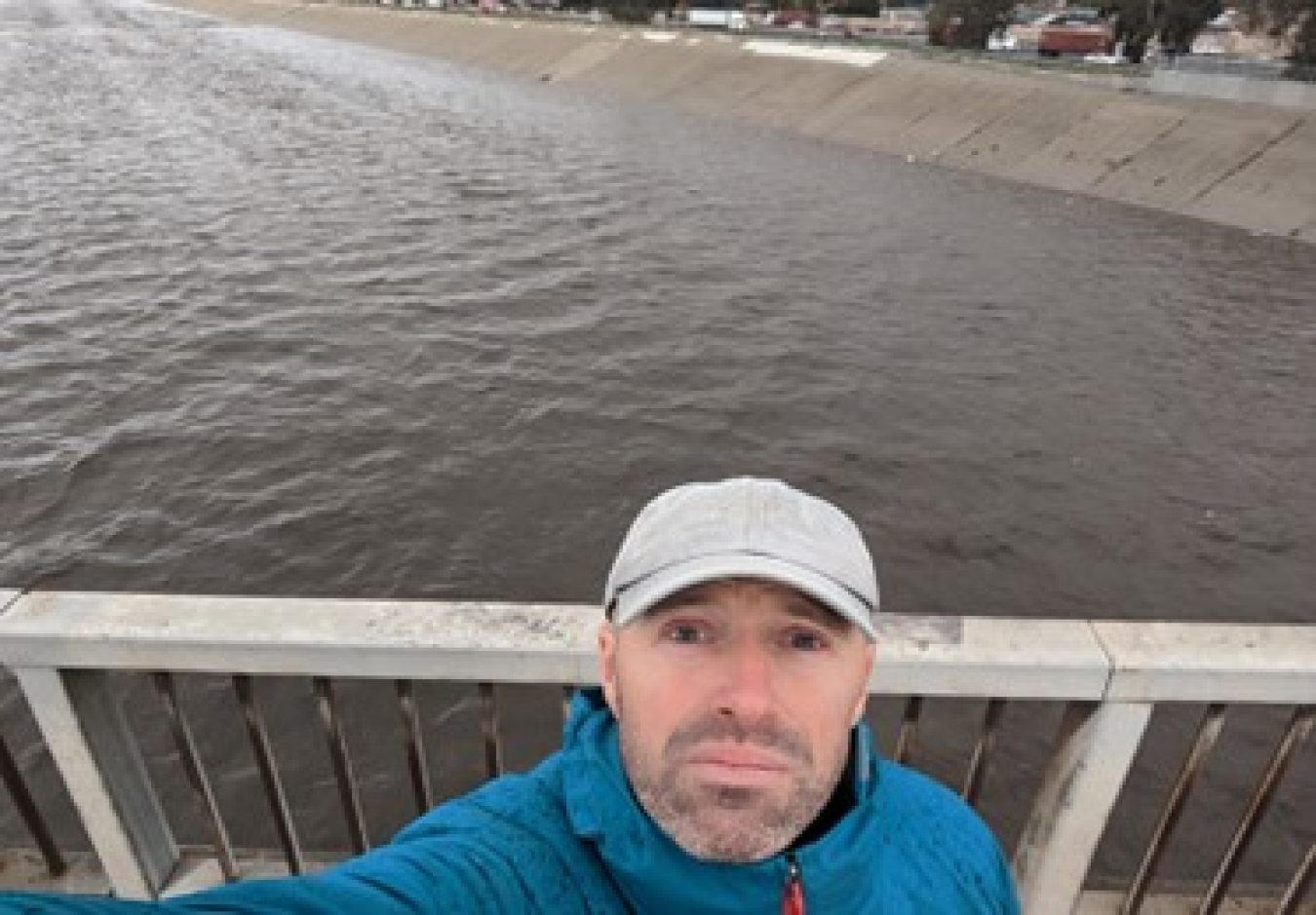Flip-flops, soda bottles, plastics contaminated with pesticides, and countless other types of debris flow from the country's waterways into the ocean. Our plastics problem is so large, we don't have a grasp on the size and scope of the issue—until now.
January 11, 2024
NREL researcher and WaterPACT principal investigator Ben Maurer takes a selfie on a bridge over the Los Angeles River. The multilab research team was able to easily spot the pollution problem at this vantage—they saw three couches floating downstream and into the ocean in just an hour-and-a-half timeframe.
Flip-flops, soda bottles, plastics contaminated with pesticides, and countless other types of debris flow from the country's waterways into the ocean. Our plastics problem is so vast, we don't have a grasp on the size and scope of the issue—until now.
The Waterborne Plastics Assessment and Collection Technologies project, otherwise known as WaterPACT, relies on National Renewable Energy Laboratory (NREL) and Pacific Northwest National Laboratory researchers, along with numerous university partners and subcontractors, to tackle the time-consuming, laborious process of determining how much plastic is flowing through our waters. The team has developed a benchmark for collecting and categorizing the data, which could ultimately lead to a solution that involves detecting and collecting waste before it ends up in the ocean.
WaterPACT also depends on members of the NREL-led, Bio-Optimized Technologies to keep Thermoplastics out of Landfills and the Environment (BOTTLE™) consortium to better understand how the collected plastics can be recycled or upcycled. BOTTLE™ is a U.S. Department of Energy (DOE) multi-organization consortium focused on developing new chemical upcycling strategies for today's plastics and redesigning tomorrow's plastics to be recyclable-by-design.
Learn more about WaterPACT research, funded in part by DOE’s Bioenergy Technologies Office and the Advanced Materials & Manufacturing Technologies Office, and DOE’s research on plastic waste and recycling.

